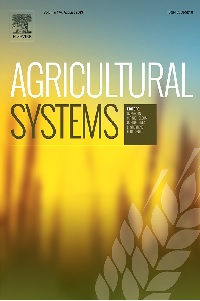Using a positive deviance approach to inform farming systems redesign: A case study from Bihar, India
Improving farming systems in resource-poor contexts is often difficult as farmers face multiple challenges to implement the innovations developed by researchers. Viable solutions may however be present within local communities by positive deviant farmers, i.e. farmers that outperform positively compared to others. This study develops a positive deviance informed methodology to support redesign of farming systems, with the aim to improve farm productive, economic and environmental performances. We tested the methodology in Bihar, India, using survey data from 43 farms and the indicators of operating profit, soil organic matter balance, water use and dietary energy production. Positive deviant farms and practices were first identified and then recombined into a redesigned farm in consultation with farmers. The FarmDESIGN model was used to calculate current farm performance and to explore potential alternative farm configurations in the redesign. We found that outstanding performance on all indicators could only be reached by integrating high livestock density with an optimal combination of crop practices, which confirms the key role of interactions among components in mixed crop-livestock systems to improve all dimensions of farm sustainability. The redesigns outperformed all real farms on the indicators assessed. Farmers confirmed the viability of the redesigns in focus group discussions and their suggestions can serve as useful input for a next cycle of farm redesign. Since all suggestions are locally practiced and have proven to be accessible, affordable and recognizable, we conclude that our methodology based on positive deviant farms and practices yields promising results with a large potential to boost agricultural development for resource-scarce smallholder farmers.

